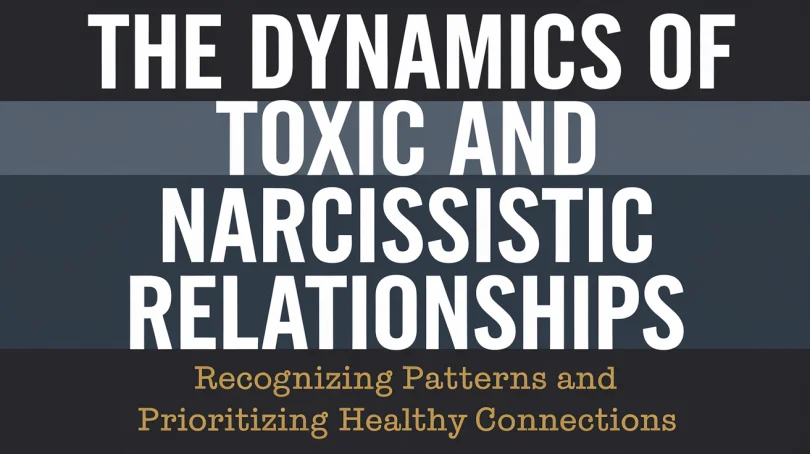Today, we’re going to explore the key characteristics of toxic, narcissistic, and unhealthy individuals. Specifically, we’ll discuss what makes these types of people fall in love so quickly and what their relationships truly look like. Let’s start by stating the obvious: this is not love. For them, love is highly conditional.
What is Conditional Love?
Conditional love is transactional. It operates on the principle of “you need to give me this in order for me to give you that.” It’s a tit-for-tat exchange, not a beautiful, harmonious connection. In conditional love, there’s no genuine respect, appreciation, or valuing of the other person for who they are. Instead, it’s about control and meeting specific needs.
What is Unconditional Love?
Unconditional love, on the other hand, is about mutual respect, appreciation, and valuing the other person without trying to change them. It’s a healthy, balanced exchange where both individuals feel seen and appreciated for who they are.
The Dynamics of Toxic Relationships
In toxic relationships, everything is conditional. The unhealthy or narcissistic person bases their feelings on what they receive from their partner. They need constant validation, admiration, and attention because they lack the ability to fill themselves up emotionally. This creates a dynamic where the relationship is built on control rather than genuine love.
Read More:
How Karma Catches Up With The Narcissist?
How Narcissists Function Without Remorse The Toxic Logic Of The Narcissist
Walk Away From These Types of People Before It Is Too Late
What Happens When You Finally Expose The Narcissist Mask?
The Role of External Validation
Unhealthy individuals often rely on external sources for self-esteem. They crave compliments, admiration, and attention because they lack a healthy self-image. For them, love is equated with being constantly fed admiration and praise. This need for validation gives them a sense of power and specialness, which they mistake for love.
The Unhealthy Giver and Taker Dynamic
An unhealthy giver is someone who constantly gives without boundaries. They cater to the toxic person’s every need, often at the expense of their own well-being. This type of person is emotionally dependent on the relationship and seeks approval from the toxic individual. Their sole purpose becomes giving, which leaves them drained and unfulfilled.
The Unhealthy Taker
The unhealthy taker, often the toxic or narcissistic individual, thrives on receiving constant attention and admiration. They take from the giver to feel enough, while the giver feels validated by giving. This creates a dysfunctional cycle where both parties are feeding into each other’s unhealthy patterns.
What Toxic Individuals Crave in a Partner
Toxic individuals are attracted to people who lack boundaries, standards, and opinions. They want someone who will go along with their demands, desires, and decisions without question. This type of person, often referred to as a “doormat,” is emotionally dependent and seeks validation through giving.
The Role of Status and Accomplishments
Toxic individuals are also drawn to people who reflect well on them. This could be due to their partner’s looks, accomplishments, or social status. However, these traits alone are not enough to sustain the relationship. The toxic person will eventually seek other qualities they feel are missing, which often leads to infidelity or dissatisfaction.
The Two Outcomes of Toxic Relationships
1. The Awakening
In some cases, the unhealthy giver will reach a point of exhaustion and have an awakening. They’ll realize the relationship is draining and unsustainable, leading them to leave or transform into a healthier version of themselves.
2. Discardment
In other cases, the toxic individual may discard the giver once they’ve exhausted their supply of attention and admiration. This often leaves the giver feeling used and unappreciated.
The Cycle of Drama and Emotional Rollercoasters
Toxic individuals thrive on drama and emotional highs and lows. They enjoy the back-and-forth dynamic of the relationship, which keeps the unhealthy giver hooked. This cycle of abuse and reconciliation is a hallmark of toxic relationships.
Gender Differences in Toxic Relationships
Narcissistic Men
Narcissistic men often use financial control or status to assert power in the relationship. They may leverage their role as the breadwinner to manipulate and abuse their partner.
Narcissistic Women
Narcissistic women may focus on achieving their own goals, often at the expense of their partner. They may take advantage of their partner’s resources or support to further their own ambitions.
The Lack of Genuine Connection
Ultimately, toxic individuals are incapable of forming genuine, healthy relationships. Their unhealed wounds and dysfunctional behaviors prevent them from experiencing true love or connection. Whether you’re the giver or the taker, the relationship will always be one-sided and unsustainable.
Conclusion
If you’re in a toxic relationship, it’s important to recognize that the problem lies with the other person’s inability to love and connect in a healthy way. You deserve a relationship built on mutual respect, appreciation, and unconditional love.






